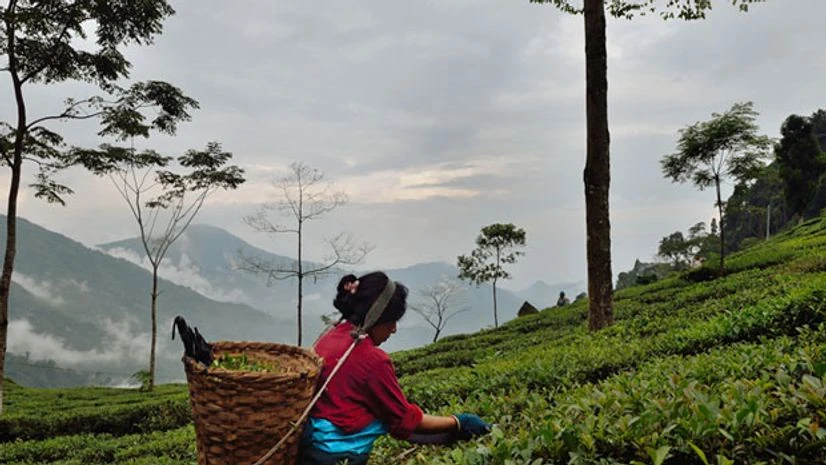Come November and Darjeeling export tea prices in the European market will soar by an average of 10 per cent, the reason being the full-scale rollout of the geographical indication (GI) tag in Germany.
A blend of 51 per cent tea from the Darjeeling hills with produce from other Himalayan regions used to be termed the “precious brew” across tea drinking countries in Europe. This will give way to using only tea originating from the hills in northern West Bengal. This in turn will result in more demand for from packagers.
Germany is considered the hub of Darjeeling tea demand, where nearly two million kg is exported, followed by Britain and America.
“From November, as GI will be fully implemented in Germany, we expect a 10 per cent rise in prices,” S S Bagaria, president of the Darjeeling Tea Association, told this newspaper.
The quality of this tea fetches Rs 5,000 a kg in an auction. Even the lowest quality yield is priced at Rs 500-1,000 a kg in the auction houses. Compared to this, Assam CTC tea fetches Rs 120-130 a kg.

According to the East India Company (now owned by an Indian businessman), “Darjeeling tea enjoys a reputation for being a nuanced flavourful tea...The characteristic most prized in the Darjeeling First Flush is its fresh earthy notes and delicate floral aroma - similar to those observed in the finest green teas."
So far, the GI has only been implemented in Germany, blending and wholesale hub in Europe for this tea. Although the GI agreement and patent was given a little over three years earlier, producers had asked German authorities for some time to fully roll it out. Industry officials said the move to implement the GI tag had to be in phases, as close monitoring from the originating gardens to the auctions to retailing was needed.
“While the German authorities had conceded to us, that stop-gap is lapsing this November. From that month, all tea marked 'Darjeeling' and carrying the logo has to be genuine tea,” Ajay Kichlu, director of Chamong Tee Exports, told this newspaper.
The increase in price will help the industry battle rising input costs and wages. It is also hoped to promote ecology-friendlier and organic farming.
“It is also a matter of prestige, as Darjeeling tea was one of the first products from India to receive the GI tag,” said Bagaria.
Traders who'd been blending Darjeeling tea with cheaper Nepalese variants are poised to be hit. “This will definitely pull up the costs for some blenders,” an association official said.
The case for Assam orthodox tea, however, hasn't been the same. While the GI approval for orthodox tea from the Assam valley was given a year before, producers and exporters seem bearish about its impact.
Russia and Iran together account for nearly 40 million kg of Assam orthodox export but India doesn't have a GI agreement with these two countries. “We haven't seen much of a positive impact over GI as far as Assam orthodox exports to these countries are concerned,” Azam Monem, one of the directors at McLeod Russel India, told this daily.

)
